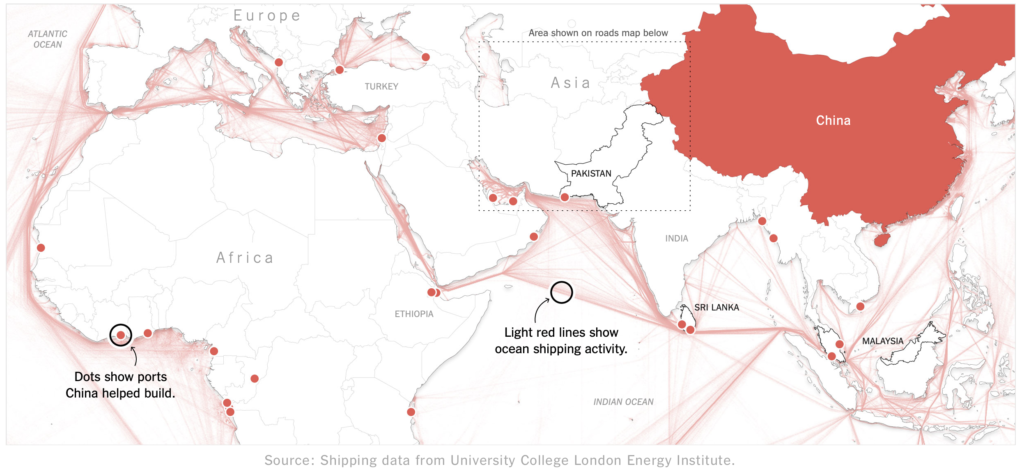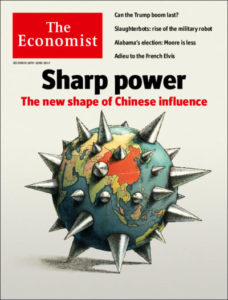 The Chinese government should ensure the projects it finances or engages in under the Belt and Road Initiative (BRI) respect human rights, Human Rights Watch said today:
The Chinese government should ensure the projects it finances or engages in under the Belt and Road Initiative (BRI) respect human rights, Human Rights Watch said today:
On April 25-27, 2019, President Xi Jinping will host heads of state and international organization leaders at the second Belt and Road Forum for International Cooperation in Beijing. The BRI, announced in 2013, is China’s trillion-dollar infrastructure and investment program stretching across some 70 countries, linking China to the rest of Asia, Africa, and Europe via land and maritime networks.
Under the Belt and Road Initiative, the Chinese government should set out requirements to enable meaningful consultation with groups of people potentially affected by proposed projects. It should also ensure that affected communities can openly express their views without fear of reprisal. Other governments, the United Nations, and financial institutions should press Beijing to adopt such protections.
 “Beijing claims it is committed to working with other countries to foster environment-friendly and sound development, but the practice so far has raised some serious concerns,” said Yaqiu Wang, China researcher at Human Rights Watch. “Criticisms of some Belt and Road projects – such as lack of transparency, disregard of community concerns, and threats of environmental degradation – suggest a superficial commitment.”
“Beijing claims it is committed to working with other countries to foster environment-friendly and sound development, but the practice so far has raised some serious concerns,” said Yaqiu Wang, China researcher at Human Rights Watch. “Criticisms of some Belt and Road projects – such as lack of transparency, disregard of community concerns, and threats of environmental degradation – suggest a superficial commitment.”
BRI projects have caused unease in Washington and elsewhere due to their impact on democratic governance, debt sustainability, and existing international environmental and labor standards, a new Brookings report notes.
“There is a risk that the more authoritarian countries will want to buy certain things from China, and might partner with China on various things,” analyst David Dollar argues in China’s Belt and Road: The New Geopolitics of Global Infrastructure Development.“There’s a risk that some of the democratic countries might become less democratic. I think these things are driven by domestic institutions and politics, and I think of BRI being exogenous in a sense.”
“The Chinese are coming in, and they’re indiscriminate, so the authoritarians buy certain things that they want to have, and you could argue that might sustain authoritarianism.”
Inhibiting democratic consolidation
“In terms of affecting domestic politics, I see Chinese economic statecraft reinforcing authoritarian trends in countries like Cambodia, or inhibiting the consolidation of democracy in Myanmar, but you don’t necessarily see the overt promotion of a Chinese political model in particular,” adds Jonathan Stromseth. “China is more interested in ensuring the survival of regimes that are key economic and strategic partners.”
Beyond Silk and Silver?
Perhaps no issue this century in the Americas has been as significant as China’s rise, from a limited presence to becoming the top trade partner of much of South America and a major investor across the region, the Council of the Americas adds. Over time, Beijing also has become more deeply invested in the region’s media, education, and ideas sphere. Given the extent of China’s engagement, no issue in regional affairs has stirred more debate in Washington and elsewhere.
What has occurred? Where is the relationship going? What are the economic and democratic governance implications for Latin America and the Caribbean? And how should the region respond? Join us for what promises to be a fascinating and timely conversation on one of the most important issues today in Western Hemisphere affairs.
Please join the Council of the Americas, Americas Quarterly, and the National Endowment for Democracy for a deep-dive discussion on China’s new agenda for engagement in the Americas. This public program will highlight the forthcoming issue of Americas Quarterly, dedicated to exploring in depth the many facets of China’s regional engagement, with a panel discussion of contributors and experts moderated by the Editor-in-Chief.
Panelists:
 Eric Farnsworth, Vice President, Americas Society/Council of the Americas
Eric Farnsworth, Vice President, Americas Society/Council of the Americas- Shanthi Kalathil, Senior Director, International Forum for Democratic Studies, National Endowment for Democracy
- Martin Maciak, Head of Asia Origination and RMB Internationalization, Americas, HSBC Securities (USA), Inc.
- Christopher Walker, Vice President for Studies and Analysis, National Endowment for Democracy
Moderator:
- Brian Winter, Vice President, Americas Society/Council of the Americas and Editor in Chief, Americas Quarterly
9:00 a.m. to 10:30 a.m. April 26, 2019
Council of the Americas
1615 L Street, NW Suite 250 Washington, DC
Register by emailing dcprograms@as-cos.org.







